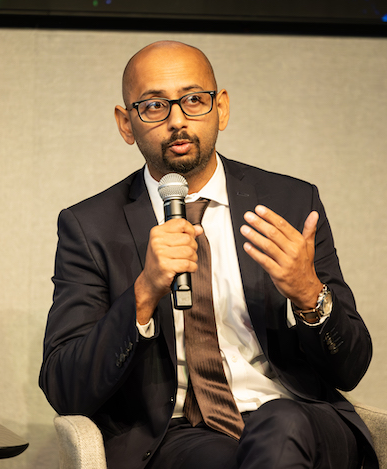Climate adaptation is a fast-growing part of the green economy that is driving the development of new solutions focused on the impact of climate change. Although currently a relatively small sector, it offers a myriad of exciting opportunities for international startups.
According to ClimateTech investors, the latent demand for climate adaptation solutions is huge because extreme weather events are increasing in frequency and severity.
“From governments to corporations, there’s a clear need for private sector-funded solutions in areas like water management, disease prevention, and infrastructure resilience.
That’s a major business opportunity,” said Katie MacDonald, co-founder of Tailwind, a Venture Development Bank.

China’s heatwave in 2022, for example, led to factory shutdowns for an entire week, illustrating the real-world costs of climate change.
Startups that provide solutions to operational risks – such as data tools that help plan for the fallout from extreme climate events and energy-efficient cooling systems that improve the resilience of agriculture – are well positioned to capitalize on the new market for climate adaptation.
Sectors with high growth potential
The potential for climate adaptation solutions spans multiple sectors, including agriculture, infrastructure, water, and health.
These include tools like climate risk mapping and services that help build resilience, such as innovative risk insurance models. There’s also a strong need for physical products that directly reduce climate risks, such as advanced irrigation systems to better manage water shortages.

The demand for these solutions is especially high in emerging markets, where vulnerability to climate change is often greatest. However, there’s also strong interest in more developed economies like the U.S. and across Europe.
“There are over 35 specific sectors that are ripe for intervention,” said Neil Walmsley, head of international adaptation programmes at Climate KIC.
As extreme heat events become more frequent and severe, so do risks to public health, especially for vulnerable populations. For example, according to a study by Arizona State University, if Phoenix were to experience a heatwave simultaneously with a power grid failure, up to 100 million people could require urgent medical care, and potentially thousands could die within just a few days.
This opens up an opportunity for startups in healthtech to innovate around cooling technologies, medical preparedness, and health monitoring systems.
Matt Anderson, founder of Cryogenx, highlighted the link between heatwaves and rising cardiovascular and respiratory issues, calling it a “new disease” emerging from climate change.

Cryogenx has responded by developing new cooling products that can prevent and rapidly reduce heat stress affecting vulnerable people, such as the elderly, during heatwaves and in areas where temperatures are steadily rising.
Agriculture is also seeing a huge boom in demand for resilience building solutions. Climate change presents significant threats to food security, particularly in regions that rely on crops vulnerable to temperature fluctuations.

According to Anmol Vanamali, a director of innovative climate finance at the U.S. International Development Finance Corporation (DFC), “60% of cocoa farms in West Africa will stop producing in the next 5-10 years unless we invest in climate adaptation.”
Startups focusing on crop resilience, soil regeneration, and water-efficient farming technologies can tap into this urgent need. For example, Sabon Sake in Ghana has developed a range of products and services for farmers, including low-cost water retaining compost and better irrigation equipment.
These solutions can significantly increase farm yields and avoid crop losses during periods of drought and water shortages.
Leveraging existing solutions
Another key opportunity for startups lies in leveraging existing technologies to address climate adaptation challenges. According to MacDonald, some startups are already using remote sensing methods such as Lidar (Light Detection And Ranging) to identify fuel in forests that could exacerbate wildfires, enabling early intervention.
“There’s a lot we can do with existing technologies,” said MacDonald, underscoring that innovation doesn’t always have to come from ground-breaking new products — it can also come from applying existing technologies in novel ways.
Moreover, the rapid development of IoT sensors, AI-driven climate models, and data analytics platforms provides startups with the tools needed to monitor and respond to climate risks in real-time.
Aumsat, which is based in India, has adapted technology originally developed to map water on the moon via satellite to assist farms across South Asia in assessing water availability and potential disruption caused by weather patterns. This helps them to plan and invest in improved irrigation systems.
These technologies can be used to optimize resource allocation, predict climate-related disruptions, and offer actionable insights to businesses and governments.
Insurance and the power of data
With climate-induced disruptions becoming more frequent, governments and businesses need resilient infrastructure.
Renate Bleich from the Munich Re Foundation pointed out that the insurance industry is a crucial partner in this effort, providing climate risk intelligence.
Insurers are working closely with governments and businesses to evaluate the cost of inaction versus the investment required for adaptation.

This data-driven approach is leading to more informed decision-making, and startups can integrate climate risk data into products, such as climate-resistant building materials or flood-proof designs.
Bleich also highlighted the role of the insurance industry in providing invaluable risk data that can guide businesses, governments, and communities in their adaptation efforts. Startups can leverage this data to refine their products and services, making them more aligned with market needs.
Where is the money?

Public funds alone won’t be enough for financing climate adaptation solutions, said Eleni Myrivili, Global Chief Heat Officer at UN-Habitat.
“We need private sector investment and philanthropic support to scale up adaptation efforts.”
Startups that can tap into climate finance pools or low-cost capital for adaptation projects will be well-positioned to scale up their activities.
As Vanamali noted, governments must provide incentives and signals to the private sector to invest in adaptation. “We need to create financial incentives for businesses to mainstream climate solutions into their operations,” he said.
Startups could also engage with international development organizations to access funding and market opportunities.
For example, DFC is working with local banks to channel financing into climate adaptation projects in emerging markets. Startups that align with DFC’s climate goals could gain access to substantial funding streams to support their projects.
Climate-KIC and its partners have established the Climate Adaptation Innovation Learning (CAIL). Led by UNIDO and sponsored by GEF, the project helps startups, accelerators and investors better understand the opportunities in the rapidly growing climate adaptation market.
For more information and to join this community, please contact: joanna.sabat@climate-kic.org
Disclaimer: The content of this article is based on the discussion panel at the ‘International Climate Innovators Meet U.S. Capital’ event, which was co-hosted and sponsored by Climate-KIC, Europe’s leading climate innovation agency and community.








